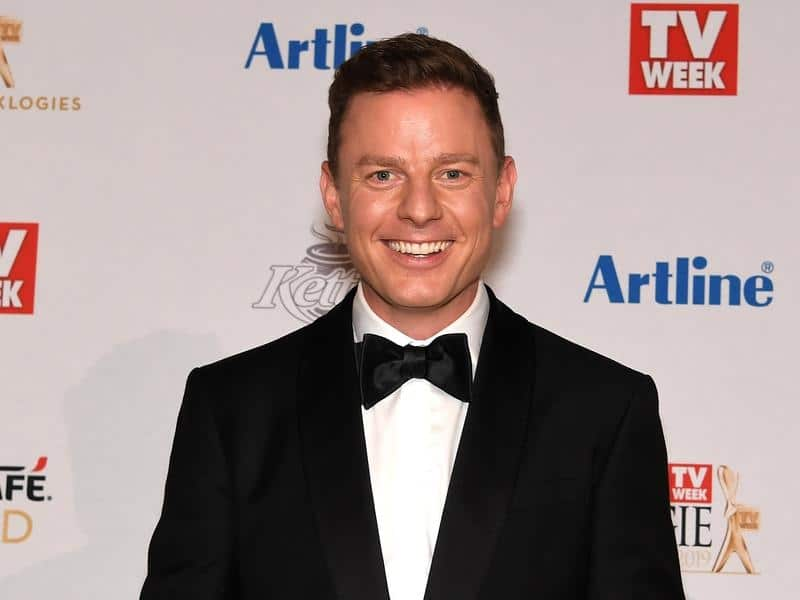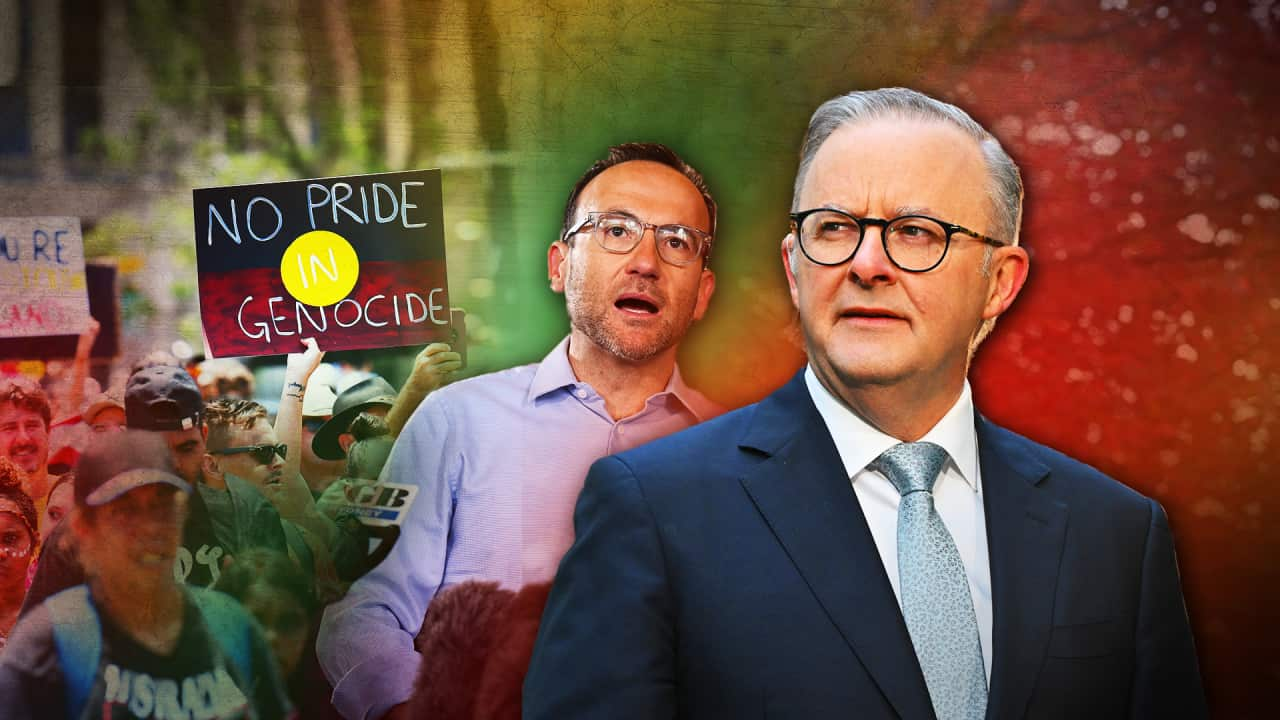KEY POINTS:
- Anthony Albanese has demanded radio host Ben Fordham 'get on board' with the Voice.
- The pair held a fiery 38-minute interview on Wednesday morning.
- Fordham said he feared the referendum will fail, suggesting the question be split.
Prime Minister Anthony Albanese has accused a radio host of "reading from the No pamphlet" and demanded he "get on board" with the Voice to Parliament during a heated 38-minute interview.
Albanese was also forced to defend taking the Voice to a referendum rather than legislating it after being warned by 2GB host Ben Fordham that support for the proposal is "falling through the floor".
Polling shows a consistent slide in support for the Voice, the latest Newspoll putting the Yes camp on course for defeat, with just 41 per cent of respondents backing the idea.
Labor has outlined its - Indigenous health, education, housing, and employment, with Indigenous Australians Minister Linda Burney, saying it would "change lives, not holidays".
But Albanese accused Fordham of "reading from the No pamphlet" during Wednesday's exchange after the host cited quotes from prominent Yes campaigners implying the Voice would have an influence well beyond that.
Fordham raised a series of hypotheticals previously dismissed by the Yes camp, including that the Voice would demand Australia Day be changed or have the capacity to speak directly to the Reserve Bank.

Anthony Albanese demanded Ben Fordham 'get on board' with the Voice. Source: AAP
"I'm worried about it failing, PM," Fordham replied.
"Well, get on board, Ben! Guess what? You're in a position to make a difference to help it succeed ... by talking about what it's about, not by raising things that are not going to be relevant," Albanese said.
Fordham warned support for the Voice was falling and suggested Labor put forward constitutional recognition of Indigenous people, which has bipartisan support, separately at the referendum.

Ben Fordham said he was concerned the Voice will fail.
"This doesn't come from politicians, it hasn't come from Canberra. Indigenous Australians had a constitutional convention ... they said they don't just want the symbolism of recognition, they want something that will make a practical difference to their lives," Albanese replied.
The prime minister said the polls had trended down because the debate had so far been held "between politicians in Canberra".
But despite the Opposition's Indigenous Australians spokeswoman, Jacinta Nampijinpa Price, leading the charge for the No camp, Albanese insisted that dynamic would shift in the coming months.
Could the Voice be legislated?
Yes.
The government could technically pass a Voice through parliament, which would not require a referendum at all.
But the Yes camp argues that it would still make it vulnerable to future governments, which could also remove it through legislation. That could see the Voice go the same way as previous Indigenous advocacy bodies.

Opposition leader Peter Dutton has previously called for Anthony Albanese to abandon the referendum. Source: AAP / Lukas Coch
But it's also worth remembering: while the Voice would be permanent, the details of how it operates would still be up to parliament. That means a future government could still radically change the Voice via legislation, though not remove it entirely.
In January, a number of crossbenchers said they'd back a legislated Voice even if the referendum fails.
What about Truth and Treaty?
During the exchange, Albanese was frustrated by Fordham raising a Treaty with Indigenous Australians and ruled out reparations.
"We have had a debate about things that aren't happening, rather than about things that are ... This isn't about a treaty ... [and] compensation is and has nothing to do with what people will vote on," he said.
The Uluru Statement from the Heart suggests the Voice as the first in three steps, with Treaty and Truth-Telling to follow. But this year's referendum would not set Treaty or Truth-Telling processes in train, and neither would require their own referendums.
"After we go through the Voice, is it natural to assume that as part of treaty..." Fordham asked.
"No, it's not natural to go through all the hypotheticals," Albanese interjected.
"I'm talking about what is on the agenda."
The Greens compromised on their preferred order - for Truth and Treaty to come before the Voice - to back the referendum.

Greens Indigenous Australians spokesperson Dorinda Cox wants work to begin on Truth and Treaty. Source: AAP
"Should this referendum not be successful, we need an insurance policy, and we need Makarrata. We need this government to commit to doing that. You can do two things at once," Greens Indigenous Australians spokeswoman Dorinda Cox told SBS News in May.
"On the Sunday when we all wake up, I do not want to be the person saying, 'What now?'"
What about state Voices?
All state and territory leaders have backed the national Voice.
There's also movement on state-level voices.

South Australia has legislated its own Voice to Parliament. Source: AAP / Mick Tsikas
The Uluru Statement From the Heart called for local and regional Voices. While it's not exactly clear how they would work, the broad idea would be to funnel advice up to the national Voice.
While rejecting the national Voice, the Coalition has backed the idea of regional and local Voices. Many Indigenous leaders say that makes no sense without national representation.










